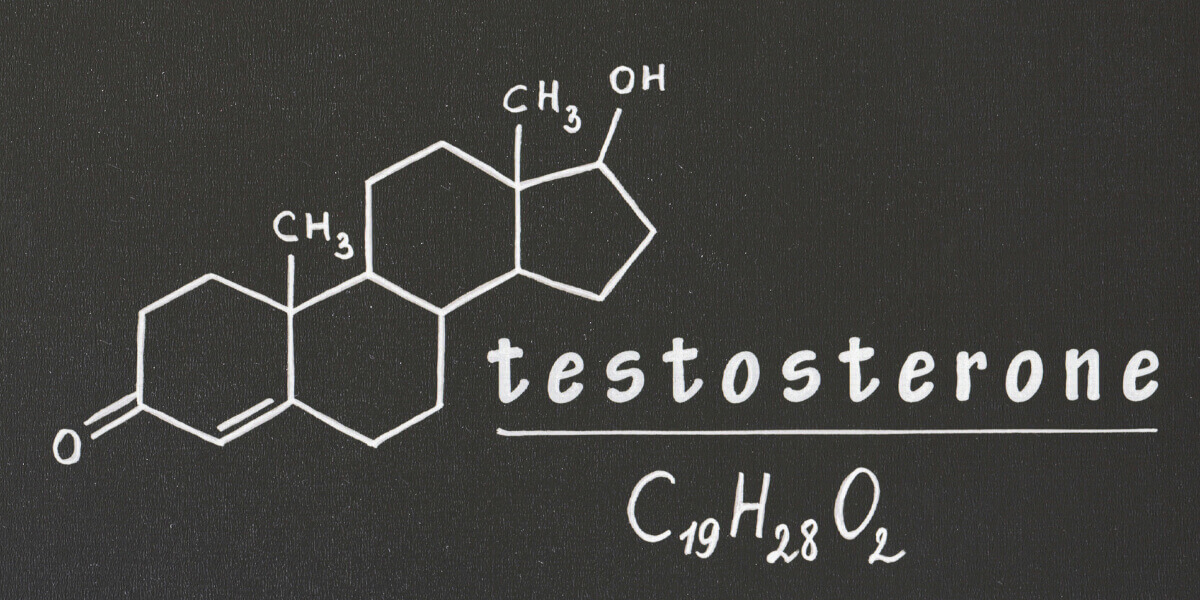Low testosterone or low testosterone deficiency can cause a plethora of symptoms, which may initially manifest as tiredness, lack of drive, relationship issues, decreased sex drive, and weight gain. These symptoms are often ignored or passed off as the manifestation of middle age, and a testosterone test might not necessarily be the first diagnostic tool chosen by a doctor. However, if symptoms are consistently overlooked they can lead to much worse symptoms such as night sweats, erection issues, and osteoporosis, which is a condition in which bones become fragile, brittle, and break easily.
Testosterone test
Men’s testosterone levels start to naturally reduce by 1% a year from the age of 30, so if a chap’s levels were low to start with he may start to be symptomatic by his mid 30’s. However, the good news is that the test for low testosterone is a very simple blood test and can be conducted by your doctor. The blood must be taken between 8AM and 11AM as that will record the highest hormone levels with the least amount of variance. The bad news is that due to the nature of locally funded NHS healthcare, depending on your results, you may not be eligible for treatment as there is no national agreement about the level at which GPs or endocrinologists (hormone specialists) should start treatment. Sadly this results in thousands of men with low testosterone levels going untreated regardless of being symptomatic.
Men’s health doctor
Dr Jeff Foster has extensive experience with the condition and he suggests that if the test shows less than 15nmol/1 of testosterone, then this may be an indicator of symptoms which when caught early enough can be totally reversed relatively simply. Despite the lack of a national consensus the British Society of Sexual Medicine aims for a target of 15-30nmol/l for testosterone and claim that we should consider treatment in men with a level of less than 12nmol/1. That said, even the total testosterone may not give a complete picture. For instance, if someone presents with a normal total testosterone level, but they are displaying the classic symptoms, then Dr Jeff will complete a “free testosterone” test, which is a more accurate and true representation of testosterone levels. Everyone is unique, therefore Dr Jeff will always encourage examining all of the evidence not just a set of numbers.
Despite the British Society of Sexual Medicine targets, many NHS clinics and endocrinologists will only consider treating men on the NHS if their level is considerably lower than that advised by the British Society of Sexual Medicine. This situation is compounded by the lack of locally agreed reference ranges in laboratories and clinics.
As stated previously, if the early symptoms are ignored they can lead to worse problems, including osteoporosis, high cholesterol, high blood pressure, and mental health concerns. Therefore, if you do have any of these symptoms consistently but are told that your levels are in the normal range you don’t have to just accept it, trust your instincts! It is strongly advisable to seek the advice of a specialist who will discuss your results and look at your daily life and circumstances in a more holistic manner.
The main culprit for low testosterone is ageing, which is unavoidable, and the second-highest cause of the condition is obesity, but with the right advice, this can be fully reversible. Other common causes which come under the lifestyle banner are exercise levels, poor sleep quality, and not enough sexual activity – if you don’t use it you lose it! Diets high in carbohydrates, fats, and phyto-oestrogens such as soy can also cause a problem, as can alcohol and a surprising amount of prescription drugs.
Dr Jeff specialises in men’s health and is an expert in treating low testosterone. He avoids arbitrarily prescribing testosterone therapy as he believes it is better to restore the body to hormonal balance naturally. When a patient with less severe symptoms has a consultation with Dr Jeff Foster he will go to great lengths to find the root cause of the issue. Without a doubt, if you can find the cause by examining lifestyle or altering medication, the body will restore the levels naturally, which will reverse symptoms. Dr Jeff conducts an in-depth review of each patient’s lifestyle, and he will occasionally advise that patients keep food diaries to refer to and work closely with personal trainers. All patients are invited for reviews to ensure they are maintaining healthy testosterone levels long term.
Sometimes, however, it is necessary to prescribe testosterone therapy (TRT) which is easily administered either by a gel rubbed on the shoulders or via injection. The results of the therapy can be quick and very effective. As the energy levels increase, so do activity levels, including a return of your sex drive. These effects can boost confidence and self-esteem, creating a positive feedback loop that can result in being weaned off the therapy once the body is restored and is able to balance its own hormone levels. Whilst TRT is not a miracle panacea of all ills, it can have a huge impact on men who have had symptoms of low testosterone for years and have become worn down by the disorder. TRT can help to restore vigour and a zest for life, improve family life and mental health, and can be a great stepping stone in the restoration of overall health.
About Dr Jeff Foster

A Men’s Health specialist and Medical Director and founder of H3 Health. I’m passionate about raising awareness of all aspects of Men’s Health, and heavily involved in both teaching and health promotion. I’m a committee member of the British Society of Sexual Medicine, and have been involved in writing the most recent national guidelines for testosterone deficiency in men.
Get in touch with Dr Jeff
If you are a prospective patient and wish to see Dr Jeff privately, then you can book an appointment via H3 Health (03309 120769 – National Rate). Alternatively if you are a member of the Media, then please use our contact form for media enquiries.






